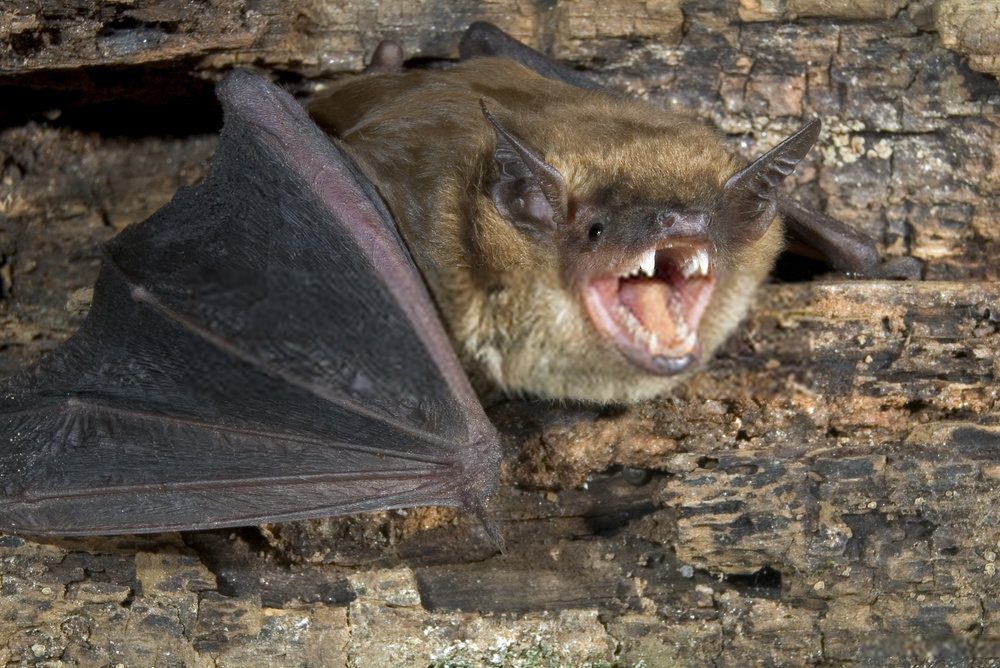The world is fighting against a pandemic caused by novel coronavirus causing COVID-19 disease and trying to understand more about them. In one such study, pathogenic coronaviruses have been found in two species of Indian bats – Indian Flying Fox and Rousettus (old world fruit bats) – a scientific study of the Indian Council of Medical Research (ICMR) on the presence of bat coronaviruses revealed.
Swab samples were taken from 25 bat species collected from Kerala, Tamil Nadu, Himachal Pradesh, and Puducherry tested positive after reverse-transcription polymerase chain reaction (RT-PCR) tests were carried out, while samples from Karnataka, Chandigarh, Gujarat, Odisha, Punjab, and Telangana were negative.
Whether or not these coronaviruses can infect humans will require further study. It is too early to say if these coronaviruses can affect humans adversely as no such study has been conducted on the issue yet, an official source said.
These findings are part of a larger study being done in India for the first time to research the presence of bat coronavirus (Bt-CoV), the source added.
The ICMR study, carried out jointly with a team of scientists from National Institute of Virology (NIV), Pune, was published in the Indian Journal of Medical Research.
The outbreak of COVID-19 disease caused by SARS-CoV-2 (severe acute respiratory syndrome coronavirus 2) virus has been linked to bats and pangolins. However, there is no conclusive evidence yet to prove that the virus jumped from bats to humans via an intermediary species.
The study is based on old samples and not due to the current coronavirus pandemic, but the gains much more relevant in the current context. The ICMR-NIV study was carried out on samples collected between 2018 and 2019 from the forests of Kerala, Karnataka, Tamil Nadu, Himachal Pradesh, Punjab, Gujarat, Odisha, Telangana, Chandigarh, and Puducherry.
Roosting sites of bats were identified in these states and with the permission of state wildlife departments, the researchers trapped bats and collected their rectal and nasal swabs. Twelve bats also died in the process of trapping, the study said.
A total of 508 samples of Indian Flying Fox bats and 78 samples of Rousettus bats were collected, as per the study. Of these, four samples of Rousettus samples and 21 samples of Indian Flying Fox tested positive for BtCoV.
All four of the Rousettus samples that tested positive were from Kerala. Among the 21 flying fox samples that tested positive, 12 were from Kerala, six were from Puducherry, two were from Himachal Pradesh and one was from Tamil Nadu.
According to the results of the study, only the rectal swab samples tested positive in both species, while all samples taken from the throat tested negative. This could reveal about the virulence of the disease.
You may also like: Indian Coronavirus Mutation Threatens Vaccine Development for COVID-19
Bats have been the focus of several such studies

Official sources aware of the ongoing research developments said two more species of bats will be tested for the presence of coronaviruses. Bats have been the focus of several such studies as it has been found that they are the natural reservoirs of many viruses, some of which are potential human pathogens.
Bats carry a large number of viruses— and the viruses they carry seem more likely to spread to people. Kevin Olival, vice president of research at EcoHealth Alliance, U.S.-based nonprofit, says scientists aren’t completely sure why, but it may have to do with the families of viruses that some bats tend to carry. There are over 130 different kinds of viruses found in bats.
They have a comparatively long lifespans when considering their size. They can live for more than 30 years. It provides for a long time for them to be persistently infected with the virus and shed it into the environment
Studies have also shown that the immune system of bats can defend against different viruses and they mostly remain unaffected themselves, sparing some viruses like Rabies which is known to kill them.
But when these viruses cross over to humans through an intermediary, they have the potential to cause great harm.
Previous outbreaks linked to bats
In 2018, ICMR-NIV had successfully linked the Nipah outbreak in Kerala to fruit bats. Even the 1998-1999 outbreak of Nipah virus in Malaysia was eventually linked to fruit bats. It was crossed over to humans via pig farms in Malaysia.
The paper called for more proactive and evidence-based surveillance to identify emerging novel viruses with epidemic potential. The paper said it is still not understood why only certain coronaviruses infect human beings.
“There is a need for proactive surveillance of zoonotic infections in bats–the detection and identification of such viruses from bats also recommend cross-sectional antibody surveys (human and domestic animals) in localities where the viruses have been detected”, the paper said.



